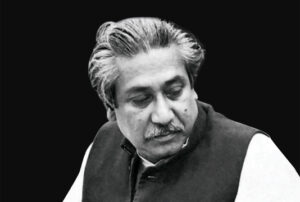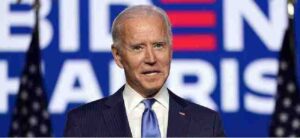Mostafa Kamal Majumder
A fresh debate on the use of Electronic Voting Machine (EVM) in the next election in Bangladesh has emerged with the Election Commission, as reported, opting to buy 2,535 new Electronic Voting Machines (EVMs). The purchase of such machines comes months before the elections to be held sometime in December. The Bangladesh Election Commission had earlier said that they did not think of using EVM in the next elections. During the last round of dialogue with political parties when in August last year the sitting Chief Election Commissioner KM Nurul Huda had showered a lot of praise on the BNP for the ‘restoration of multiparty democracy’ in the country thus causing the ruling Awami League (AL) Party stalwarts first to raise eyebrow and then use words of appeasement ‘we know why the CEC has said so’ about a party and their leaders being condemned as enemies. In the same dialogue, the AL made it known to the EC their preference for EVMs. The BNP had stated its position against the use of such machines terming their efficacy in fair elections controversial.
Reports published in different Dhaka dailies say, ‘At present, the EC has 1,200 old EVMs. Earlier, it produced 130 EVMs in the first phase, and 400 in the second with the help of BUET and finally 700 with the help of Bangladesh Machine Tools Factory. The commission had spent from Tk 45,000 to Tk 50,000 to produce each EVM.
Records show, the commission first used EVMs in one polling station each of Rangpur and Chittagong city polls in 2010 with the help of the Bangladesh University of Engineering and Technology and BMTF. Later, EVMs were used in Narayanganj and Comilla city polls and Narsingdi municipal elections.
The EVM debate in Bangladesh is at least 10 years old. The initiative to introduce EVMs was first taken by the Election Commission constituted under the leadership of ATM Shamsul Huda by the military-backed caretaker government of Fakhruddin Ahmed in 2007. During the 2-year period, the Election Commission’s half-done voter identity card project was redone under a new robust National Identity Card (NID) Project. However, for reasons never adequately clarified, those ID cards were of no use in the subsequent December 2008 general elections on the plea that the voter ID numbers and the National ID numbers were not identical.
An expert from the Bangladesh University of Engineering and Technology, appointed by the Shamsul Huda-led EC fabricated the first EVM machines that would be suitable for use in Bangladesh. And the EC had invited newspaper editors and some relevant IT experts to brief on the same at the commission’s conference room. The briefing session in had no time turned into a debate between the BUET expert who developed the device and an IT expert from the North South University (NSU) on its benefits and disbenefits, reliability and unreliability. The outcome was that the EC did not proceed with any plan to use EVMs in the 2008 elections, although under the half-done voter ID card project of the Justice Abdur Rouf-led EC some model elections were organized in the mid-1990s.
What did the IT experts debate on EVMs before editors of national newspapers? The unscheduled debate had started with a question as to whether like computers the EVMs were susceptible to virus attacks. The BUET expert replied in the affirmative. Then the NSU expert suggested that an EVM machine can be manipulated to give an output which could be different from the one a voter would intend to get by pushing a button of his choice on the machine. It was also agreed that the device could be manipulated both manually, by tempering with switch connections or using remote control. The conclusion that was drawn at the end of the briefing-cum-debate session was that the use of the EVMs is reliable only when the credibility of the men behind the machines is beyond question.
The latest experiments with EVMs in municipalities and city corporations have met with complaints from voters and contesting candidates that the operators of the machines in many cases pushed buttons of the machines themselves before voters could come to grasp with the device they saw and were to use for the first time. Based on these experiences the Election Commission should exercise extreme caution in introducing EVMs. Any mishandling of EVMs might lead to public rejection of those and the wastage of the taxpayers’ money.




